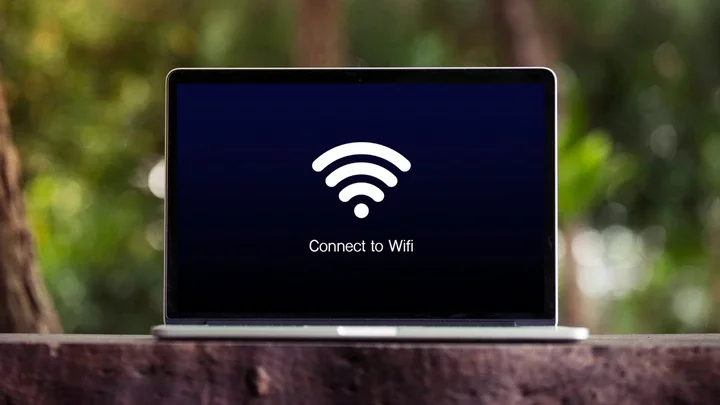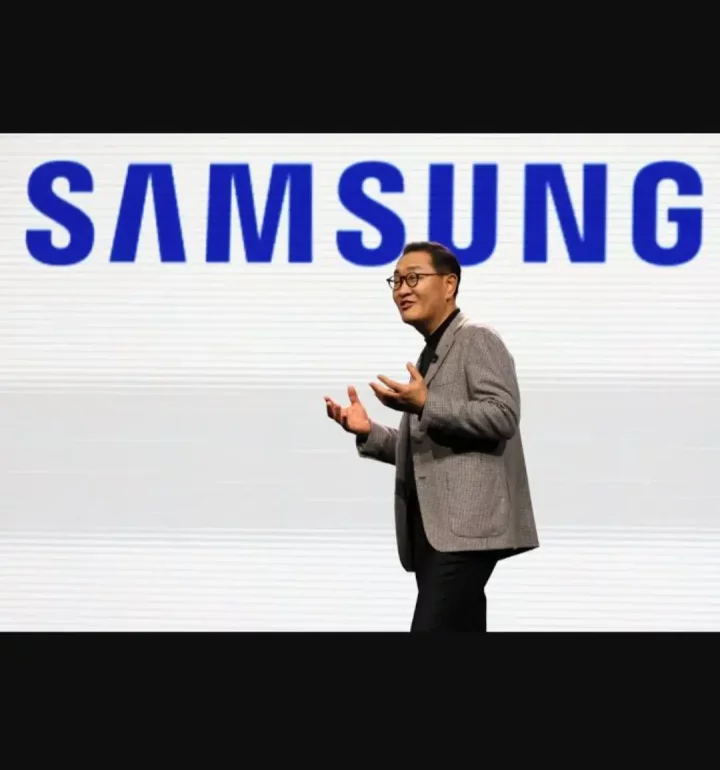For years, people believed the term meant "wireless fidelity."

Image courtesy of Getty Images
Wi-Fi is a term used daily, often without consideration of its meaning or origin. There are many theories about what it actually stands for, for example Wi-Fi being an abbreviation of "Wireless Fidelity," like Hi-Fi, which stands for "High Fidelity" and means high-quality sound reproduction.
Another suggestion is Wi-Fi was concocted to sound catchy, which has added to speculation and confusion on social media.
"TIL, the term Wi-Fi was the invention of a brand-consulting firm and has no technical meaning," read one 2021 Reddit post. "And here I was thinking it meant Wireless Fidelity the entire time," another user commented below.
In fact, numerous online articles and social media posts on TikTok and Instagram claimed Wi-Fi stood for "Wireless Fidelity."
Elsewhere, Wi-Fi was the answer to the following clue on the famous game show Jeopardy!: "The name of this technology that allows local area networks to operate without wiring or cables just sounds cool--that's all."
Google search results added to the confusion by providing mixed answers. They suggested Wi-Fi's full meaning was "Wireless Fidelity," while also showing a snippet from an article claiming it was a made-up term (see screenshot below).
(Google search result)
Moreover, Cambridge Dictionary indicated that Wi-Fi, in Business English, was an "abbreviation for wireless fidelity: a system used for connecting computers and other electronic equipment to the internet without using wires."
So, which definition is correct? The answer is somewhat complicated.
The Definition and Origin of the Term Wi-Fi
Phil Belanger, a founding member of the Wi-Fi Alliance, the organization that owns the Wi-Fi trademark, said the term was not an acronym and did not stand for anything specific. The phrase was created as a more consumer-friendly name for the technical standard "IEEE 802.11." Therefore, it was a standalone brand name created for marketing purposes, without a specific meaning behind the letters.
However, in the early days, the organization briefly used the tagline "The Standard for Wireless Fidelity," which likely contributed to the misconception that Wi-Fi stood for "Wireless Fidelity."
The Wi-Fi Alliance is a global nonprofit organization that promotes and certifies Wi-Fi technology. Established in 1999, the alliance consists of a consortium of companies dedicated to driving the adoption and evolution of Wi-Fi products and services:
When the freshly minted Wi-Fi® trademark was first introduced by the Wireless Ethernet Compatibility Alliance (WECA) back in 1999, the wireless local area network (LAN) industry was already ten years old, but still in its infancy. There were wireless solutions on the market, but little interoperability between products from different vendors. The industry shipped fewer than one million devices, and nearly all of those were aimed at the enterprise market.
In 2005, Phil Belanger - a founding member of the Wi-Fi Alliance, who presided over the selection of the name Wi-Fi - told Boing Boing - a website devoted to technology, entertainment, and culture - the name Wi-Fi didn't originally stand for anything (emphasis in quote ours):
Wi-Fi doesn't stand for anything.
It is not an acronym. There is no meaning.
Wi-Fi and the ying yang style logo were invented by Interbrand.
We (the founding members of the Wireless Ethernet Compatibility Alliance, now called the Wi-Fi Alliance) hired Interbrand to come up with the name and logo that we could use for our interoperability seal and marketing efforts. We needed something that was a little catchier than "IEEE 802.11b Direct Sequence". Interbrand created "Prozac", "Compaq" "oneworld", "Imation" and many other brand names that you have heard of. They even created the company name "Vivato".
Belanger explained how the Wi-Fi Alliance briefly used the tagline "The Standard for Wireless Fidelity," which likely contributed to the misconception of Wi-Fi standing for "Wireless Fidelity":
The only reason that you hear anything about "Wireless Fidelity" is some of my colleagues in the group were afraid. They didn't understand branding or marketing. They could not imagine using the name "Wi-Fi" without having some sort of literal explanation. So we compromised and agreed to include the tag line "The Standard for Wireless Fidelity" along with the name. This was a mistake and only served to confuse people and dilute the brand. For the first year or so (circa 2000) , this would appear in all of our communications. I still have a hat and a couple of golf shirts with the tag line. Later, when Wi-Fi was becoming more successful and we got some marketing and business people from larger companies on the board, the alliance dropped the tag-line.
Moreover, Belanger said the team chose Wi-Fi from a list of 10 names brand consultancy company Interbrand proposed:
This tag line was invented after the fact. After we chose the name Wi-Fi from a list of 10 names that Interbrand proposed. The tag line was invented by the initial six member board and it does not mean anything either. If you decompose the tag line, it falls apart very quickly. "The Standard"? The Wi-Fi Alliance has always been very careful to stay out of inventing standards. The standard of interest is IEEE 802.11. The Wi-Fi Alliance focuses on interoperability certification and branding. It does not invent standards. It does not compete with IEEE. It complements their efforts. So Wi-Fi could never be a standard. And "Wireless Fidelity" - what does that mean? Nothing. It was a clumsy attempt to come up with two words that matched Wi and Fi. That's it.
So we were smart to hire Interbrand to come up with the name and logo. We were dumb to confuse and water down their efforts by adding the meaningless tag line. Please help reinforce the good work that we did and forget the tag line.
We reached out to Belanger for confirmation of the above comments and will update this report if we receive a response.
Encyclopedia Britannica defined Wi-Fi as "networking technology that uses radio waves to allow high-speed data transfer over short distances," and similarly said:
The term Wi-Fi was coined by the Wireless Ethernet Compatibility Alliance, a global nonprofit organization created to promote the new wireless standard. The term was proposed by a marketing firm in part because of the term's resonance with hi-fi. (Wi-Fi is, however, not an abbreviation for "wireless fidelity.")
"Wi-Fi is a wireless networking technology that uses radio waves to provide wireless high-speed Internet access. A common misconception is that the term Wi-Fi is short for 'wireless fidelity,' however Wi-Fi is a trademarked phrase that refers to IEEE 802.11x standards," Washington Technology Solutions, a consolidated technology services agency for the state of Washington, explained.
We reached out to the Wi-Fi Alliance for comment and will update this article if we receive a response.
This was not the first time we looked at a Wi-Fi-related claim. For instance, in April 2017, we investigated whether a group of Danish students proved that Wi-Fi signals harm human health in a study involving routers and cress seeds.
















Comments